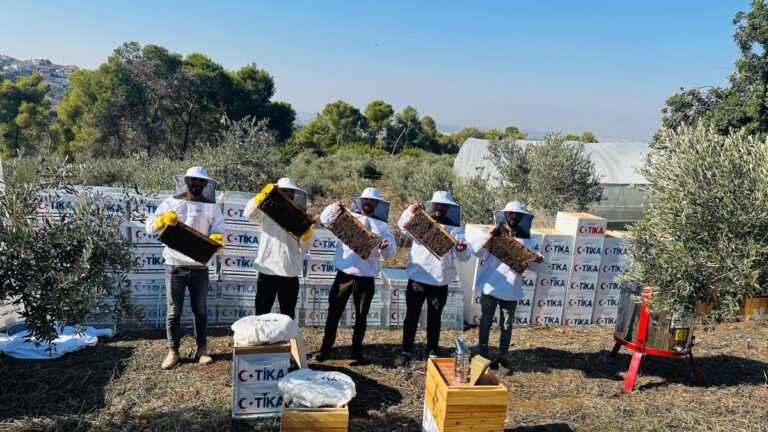The Turkish cooperation and coordination bureau (T -IKA) provides support for projects aimed at developing a beekeeping section in Palestine.
According to Tika’s written statement, the protocol of the program aimed at developing the Palestinian beekeeping sector was signed at a ceremony held by the Palestinian Agriculture.
This program will be implemented in cooperation with the Palestinian Beekeeping Council, the Ministry of Agriculture, the Ministry of Palestine, the Birzitin University, and the Arab Agricultural Technology Association.
The purpose of this project is to provide beekeeping training to women and young people living in rural areas, acquire skills, and support income. In addition, the program plans to enhance production capacity and promote exports of products such as pollen, propolis, and beeswax.
In the first stage of the program, beekeeping materials and equipment were provided to eight agricultural vocational high schools in Palestine and 13 Director of Agricultural and Regional Bureau.
In the second stage of this project, we plan to train about 300 teachers, students, and citizens at Ramala, Talkarim and Hebron’s agricultural vocational high schools every year.
In a ceremony speech, Minister of Agriculture, Minister of Agriculture, emphasized the role of beekeeping in Palestinian agriculture and pointed out that the sector is facing many issues.
Selimiye emphasized the importance of the protocol, expressed hope for the implementation of a program in Gaza, and thanked the Türkiye and Turkey people.
Jerusalem’s Consul -General’s Consul -General’s Consul -General ISMAILCHOBANO LU said that a large Tika project in Palestine has contributed to national economic development.
Chabanor has pointed out that the beekeeping program is important for food security, economic development and employment.
Bassli Sally, Deputy Minister of Education, emphasized the important role of such projects in struggling with unemployment.
Beekeeping is an indispensable agricultural department in Palestinian, and more than 2,500 beekeepers produce about 400 tons of honey per year, providing more than 5,000 seasonal employment.
Palestine honey is known for its unique taste, but is sold at high prices due to its limited production, and can only satisfy the demand in the domestic market. The share of export sector is very limited.



